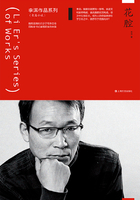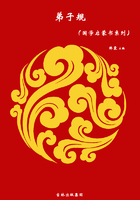From the end of the Persian to the beginning of the Peloponnesian War - The Progress from Supremacy to Empire THE way in which Athens came to be placed in the circumstances under which her power grew was this. After the Medes had returned from Europe, defeated by sea and land by the Hellenes, and after those of them who had fled with their ships to Mycale had been destroyed, Leotychides, king of the Lacedaemonians, the commander of the Hellenes at Mycale, departed home with the allies from Peloponnese. But the Athenians and the allies from Ionia and Hellespont, who had now revolted from the King, remained and laid siege to Sestos, which was still held by the Medes. After wintering before it, they became masters of the place on its evacuation by the barbarians; and after this they sailed away from Hellespont to their respective cities. Meanwhile the Athenian people, after the departure of the barbarian from their country, at once proceeded to carry over their children and wives, and such property as they had left, from the places where they had deposited them, and prepared to rebuild their city and their walls. For only isolated portions of the circumference had been left standing, and most of the houses were in ruins; though a few remained, in which the Persian grandees had taken up their quarters.
Perceiving what they were going to do, the Lacedaemonians sent an embassy to Athens. They would have themselves preferred to see neither her nor any other city in possession of a wall; though here they acted principally at the instigation of their allies, who were alarmed at the strength of her newly acquired navy and the valour which she had displayed in the war with the Medes. They begged her not only to abstain from building walls for herself, but also to join them in throwing down the walls that still held together of the ultra-Peloponnesian cities. The real meaning of their advice, the suspicion that it contained against the Athenians, was not proclaimed;it was urged that so the barbarian, in the event of a third invasion, would not have any strong place, such as he now had in Thebes, for his base of operations; and that Peloponnese would suffice for all as a base both for retreat and offence. After the Lacedaemonians had thus spoken, they were, on the advice of Themistocles, immediately dismissed by the Athenians, with the answer that ambassadors should be sent to Sparta to discuss the question. Themistocles told the Athenians to send him off with all speed to Lacedaemon, but not to dispatch his colleagues as soon as they had selected them, but to wait until they had raised their wall to the height from which defence was possible. Meanwhile the whole population in the city was to labour at the wall, the Athenians, their wives, and their children, sparing no edifice, private or public, which might be of any use to the work, but throwing all down. After giving these instructions, and adding that he would be responsible for all other matters there, he departed. Arrived at Lacedaemon he did not seek an audience with the authorities, but tried to gain time and made excuses. When any of the government asked him why he did not appear in the assembly, he would say that he was waiting for his colleagues, who had been detained in Athens by some engagement; however, that he expected their speedy arrival, and wondered that they were not yet there. At first the Lacedaemonians trusted the words of Themistocles, through their friendship for him; but when others arrived, all distinctly declaring that the work was going on and already attaining some elevation, they did not know how to disbelieve it. Aware of this, he told them that rumours are deceptive, and should not be trusted; they should send some reputable persons from Sparta to inspect, whose report might be trusted. They dispatched them accordingly. Concerning these Themistocles secretly sent word to the Athenians to detain them as far as possible without putting them under open constraint, and not to let them go until they had themselves returned. For his colleagues had now joined him, Abronichus, son of Lysicles, and Aristides, son of Lysimachus, with the news that the wall was sufficiently advanced; and he feared that when the Lacedaemonians heard the facts, they might refuse to let them go. So the Athenians detained the envoys according to his message, and Themistocles had an audience with the Lacedaemonians, and at last openly told them that Athens was now fortified sufficiently to protect its inhabitants; that any embassy which the Lacedaemonians or their allies might wish to send to them should in future proceed on the assumption that the people to whom they were going was able to distinguish both its own and the general interests. That when the Athenians thought fit to abandon their city and to embark in their ships, they ventured on that perilous step without consulting them;and that on the other hand, wherever they had deliberated with the Lacedaemonians, they had proved themselves to be in judgment second to none. That they now thought it fit that their city should have a wall, and that this would be more for the advantage of both the citizens of Athens and the Hellenic confederacy; for without equal military strength it was impossible to contribute equal or fair counsel to the common interest. It followed, he observed, either that all the members of the confederacy should be without walls, or that the present step should be considered a right one.
The Lacedaemonians did not betray any open signs of anger against the Athenians at what they heard. The embassy, it seems, was prompted not by a desire to obstruct, but to guide the counsels of their government: besides, Spartan feeling was at that time very friendly towards Athens on account of the patriotism which she had displayed in the struggle with the Mede. Still the defeat of their wishes could not but cause them secret annoyance. The envoys of each state departed home without complaint.















